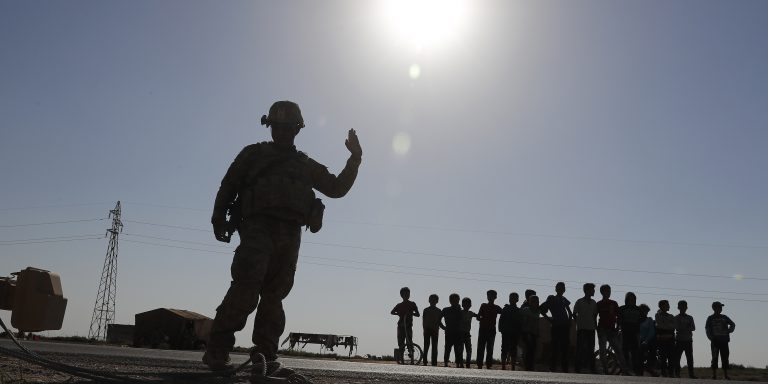INTELBRIEF
April 19, 2018
IntelBrief: An Entangled Power: The U.S. in the Middle East

- From Syria to Yemen, the U.S is deeply entangled militarily in the Middle East but with as little influence as it has ever had in the region.
- The U.S. strategy in Syria is muddled at best, with concerted efforts to stay out of the Syrian civil war while fighting against the so-called Islamic State proving to be near impossible.
- In Yemen, the U.S. is trapped by its direct support of the disastrous Saudi-led campaign which has failed to resolve the conflict and contributed to the worst humanitarian disaster in decades.
- In Iraq, the U.S. support to Baghdad in its fight against the Islamic State has not translated into any positive influence.
.
With its direct military operations, indirect military support, and prolific arms sales, the United States is as deeply entangled in the Middle East as it ever has been. Ironically, however, it finds itself with relatively little meaningful influence in the region. The U.S. has always overestimated its leverage in the Middle East, but perhaps at no time since the end of the Second World War has Washington had such little ability to influence events—while its military personnel are active throughout the region, including in Iraq, Jordan, Qatar, Syria, and Yemen. In Jordan and Qatar, the U.S. has long maintained bases and a sizable military footprint. In Iraq, the U.S. surged again to help the Iraqi government in its existential fight against the Islamic State but now, as before, finds itself without much real influence with Baghdad. It is, however, in Syria and Yemen that the U.S. finds itself entangled with the most risk and the least ability to create positive impact.
The U.S. strategy in Syria is muddled at best, with concerted efforts to stay out of the Syrian civil war while fighting against the so-called Islamic State proving to be near impossible. While the U.S. was successful in reducing the Islamic State from a proto-state back to a terrorist group—an undeniable accomplishment—it came at a considerable cost in terms of U.S. relations with various regional actors. Relations with Turkey, a fellow NATO member, are as bad as they have ever been; the reasons for this are complicated, but the U.S. partnering with the Syrian Kurds in the fight against the Islamic State was no small factor. The U.S.’ retraction of support to the Kurds—one of its few strong military partners in the region—when Ankara moved militarily against them, has badly damaged U.S. relations with its Kurdish allies. And, the outcome of the recent missile strike in Syria shows the limits of U.S. influence in the country.
The direct and substantial support the U.S. provides to the Saudi coalition in Yemen is yet another military quagmire. The Pentagon has defended its support of the air campaign being waged by the Saudis—which has failed to resolve the conflict, killed thousands of civilians, hampered the fight against al-Qaeda in the Arabian Peninsula, and contributed to the worst humanitarian disaster in decades—by saying civilian casualties would be worse if the U.S. was not helping to improve Saudi targeting.In a March 14 letter to U.S Senate Leader Mitch McConnell, Defense Secretary Mattis wrote that ‘new restrictions on this limited U.S. military support could increase civilian casualties, jeopardize cooperation with our partners on counter-terrorism and reduce our influence with the Saudis—all of which would further exacerbate the situation and humanitarian crisis.’ That letter was in response to tentative congressional action to force the administration to end its support for the Yemen war or at least find new justification for it—an effort which has stalled in the Senate.
.
For tailored research and analysis, please contact: info@thesoufancenter.org
[video width="960" height="540" mp4="https://thesoufancenter.org/wp-content/uploads/2018/04/Final-Edit-1-176.mp4" poster="https://thesoufancenter.org/wp-content/uploads/2018/04/AP_17291568209911.jpg"][/video]